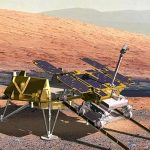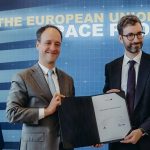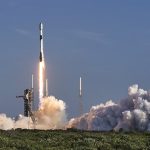For the first time in Europe, the German government has entrusted a privately financed European space company with the launch of institutional payloads.
 European launch service provider Isar Aerospace and the German Space Agency at DLR have announced the selection of the institutional payloads for the maiden flight of the “Spectrum” rocket planned for the end of 2022 as part of the microlauncher competition.
European launch service provider Isar Aerospace and the German Space Agency at DLR have announced the selection of the institutional payloads for the maiden flight of the “Spectrum” rocket planned for the end of 2022 as part of the microlauncher competition.
The selected payloads were from Germanys DLR Responsive Space Competence Center; The Technical University and Institute of Aerospace Engineering in Berlin; The Center for Telematics in Würzburg, Germany; The Norwegian University of Science and Technology in Trondheim; and Slovenias Institute of Electronics and Telecommunications at the University of Maribor. The seven small satellite payloads from these organisations will be used to demonstrate various technologies in space, such as communication or weather data measurement.
This endeavour between the German Space Agency at DLR and Isar Aerospace represents a first-of-a-kind collaboration between a public institution and a private launch service provider in the European industry.
With the microlauncher competition, the German government entrusts a privately financed European space company under the ESA C-STS programme to transport institutional payloads into orbit for the first time.
Daniel Metzler, CEO of Isar Aerospace, said: “We are pleased to announce the selection of payloads for the first flight of Spectrum and thank the German Space Agency at DLR and the institutions for their trust. It is great to be part of this pioneering programme and we are looking forward to further shaping the cooperation between the public and private sector in European spaceflight. This collaboration will further contribute to the development of research and technology in space and will help growing the overall private space ecosystem in Europe.”
With the microlauncher programme, DLR and ESA set up a programme to drive forward the commercialisation of European spaceflight and to set it up autonomously and competitively, especially in the field of smaller payloads. Isar Aerospace won the first round of the German microlauncher competition in April 2021 for which it received 11 million euros towards the launch of institutional payloads on the first two flights.
Dr Walther Pelzer, Executive Board member of the DLR and Head of the German Space Agency at DLR, added: “With the microlauncher competition and the payload selection for Isar Aerospaces first flight, we are taking another concrete step in the commercialisation of European spaceflight. Isar Aerospace’s Spectrum rocket symbolises the dynamic development of the European space industry in recent years and in the future.”
The small satellites with a total weight of approximately 100 kg including the deployers will be transported into a polar orbit from Andøya in Norway.
For this purpose, Exolaunch will provide Isar Aerospace with integration services and with the small satellite deployer “EXOpod”, which will be used to deploy the satellites to their final orbits.
Jeanne Medvedeva, VP of Launch Services at Exolaunch, stated: “Our advanced separation systems have enabled reliable launch and deployment for nearly over 170 small satellites, and together with Isar Aerospace we can bring an end-to-end, 100% made in Germany launch service. We are happy to partner with Isar Aerospace, as we see the company becoming an important player in the European launch landscape.”
Another deployer for the satellites, a deployment command sequencer and integration support services for the first flight of Spectrum will be provided by ISISPACE, a company that designs and delivers small satellite platforms for single missions and constellations.
Abe Bonnema, Director, ISISPACE/ISILAUNCH, remarked: “We are very pleased to see the start of long-term cooperation between ISISPACE and Isar Aerospace. With our proven launch interface equipment and ISILAUNCH’s extensive experience in small satellite launch services we are glad to support Isar Aerospace in disrupting the European small launch capabilities with their innovative new launch vehicle.”














































































